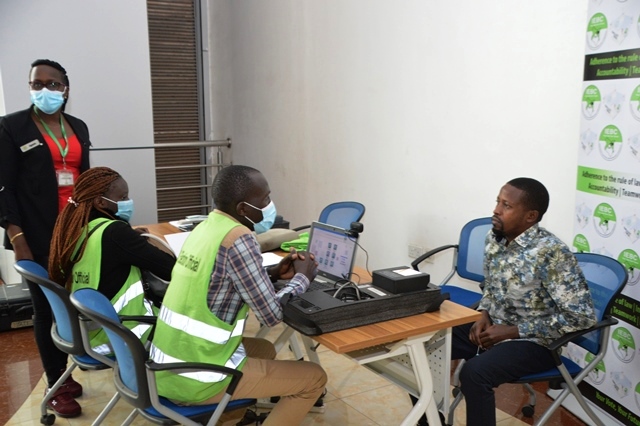Polling clerks play a vital role in ensuring the smooth execution of elections in Kenya. Hired temporarily by the Independent Electoral and Boundaries Commission (IEBC), these officials are pivotal in upholding the democratic process by assisting in the operations of polling stations during elections.
In this article, we will explore the roles, qualifications, and additional insights into the responsibilities of polling clerks, as well as the significance of their duties in the electoral process.
Understanding the Role of a Polling Clerk
Polling clerks work under the supervision of the Presiding Officer, who is in charge of the polling station. The clerks assist in various capacities, ensuring that voting proceeds seamlessly and in compliance with electoral laws.
Key Responsibilities of a Polling Clerk
- Facilitating Smooth Voter Flow
- Ensuring voters queue in an orderly manner.
- Directing individuals to appropriate stations within the polling center.
- Voter Verification
- Checking voter details such as name, national ID, and voter card number in the register.
- Ensuring only eligible voters cast their ballots.
- Issuing Ballot Papers
- Stamping and handing out ballot papers to voters.
- Providing clear instructions on how to vote and deposit ballots in the correct boxes.
- Maintaining Order and Cleanliness
- Ensuring the polling station remains organized and tidy.
- Demarcating areas within the station to guide voters effectively.
- Marking Voters
- Marking voters to indicate they have cast their vote, preventing double voting.
- Setting Up and Preparing the Polling Station
- Assisting the Presiding Officer in arranging polling and counting rooms.
- Setting up voting booths to ensure voter privacy.
- Assisting Voters
- Helping voters who may require assistance, such as the elderly or persons with disabilities.
- Providing clear guidance without influencing voter decisions.
- Ballot Counting and Sorting
- Assisting the Presiding Officer in sorting and counting ballots at the close of polling.
- Ensuring Voting Secrecy
- Monitoring the voting area to ensure that voters cast their votes privately.
- Carrying Out Additional Duties
- Performing any other responsibilities assigned by the Presiding Officer to support the polling process.
Qualifications for a Polling Clerk
To qualify for the position of a polling clerk, candidates must meet the following criteria:
- Educational Requirements
- A minimum of a C- grade in the Kenya Certificate of Secondary Education (KCSE).
- Citizenship and Integrity
- Must be a Kenyan citizen with a high level of integrity.
- Must be non-partisan and demonstrate good character.
- Residency
- Should be a resident of the ward where the polling station is located.
- Professionalism and Communication
- Must possess excellent communication skills.
- Should be polite, professional, and courteous when dealing with voters.
- Availability
- Must be available for the entire election period, including any necessary training sessions.
Training and Preparation
Before elections, polling clerks undergo rigorous training conducted by the IEBC. This training ensures they are familiar with:
- Electoral laws and regulations.
- The setup and operation of polling equipment.
- Handling various scenarios that may arise during voting, such as disputes or technical issues.
Why Polling Clerks Are Crucial
Polling clerks are the backbone of any election, ensuring:
- Transparency: By verifying voter identities and maintaining accurate records.
- Efficiency: Ensuring smooth operations within polling stations.
- Accessibility: Providing assistance to voters who may face challenges during the voting process.
- Democracy: Upholding the right of citizens to vote freely and in secret.
Challenges Faced by Polling Clerks
Despite their essential role, polling clerks often encounter challenges such as:
- Long Hours: Election days can be exhausting, with clerks working from early morning until the counting is complete.
- Voter Misunderstandings: Handling voters who may not understand the process or become impatient.
- High-Stress Environment: Managing queues, ensuring accuracy, and addressing disputes under tight timelines.
How to Apply to Be a Polling Clerk
The IEBC periodically advertises polling clerk positions during election periods. Interested individuals can:
- Visit the IEBC website or local offices for application details.
- Submit their credentials, ensuring they meet the stated qualifications.
Applications are often competitive, given the critical nature of the role and the opportunity to contribute to Kenya’s democratic process.
The Impact of Polling Clerks on Democracy
Polling clerks not only facilitate the voting process but also reinforce the public’s trust in elections. By ensuring fairness, transparency, and adherence to procedures, they play an instrumental role in strengthening democracy in Kenya.
The role of a polling clerk in Kenya extends beyond managing queues or issuing ballot papers. These individuals are key players in ensuring free, fair, and credible elections. Their dedication and professionalism safeguard the democratic rights of millions of Kenyans.
Aspiring polling clerks should approach the role with a sense of duty and commitment, understanding its profound impact on the nation’s governance and future.





